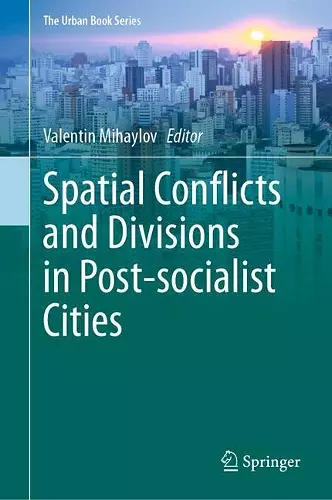Spatial Conflicts and Divisions in Post-socialist Cities
Format:Hardback
Publisher:Springer Nature Switzerland AG
Published:16th Dec '20
Currently unavailable, our supplier has not provided us a restock date
This hardback is available in another edition too:
- Paperback£114.00(9783030617677)

This book presents cross-national insights into spatial fragmentation in post-socialist cities in Europe. Trying to rethink the heritage of the last 30 years of transformation and grasp current processes taking urban units of various categories as examples, the book exemplifies typical or unique causes of political, social and ethnic disintegration of cities in Central and Eastern Europe. Presenting spatial studies into different cases of conflict in a cross-national context, the authors apply concepts of contested and divided cities, urban geopolitics, cultural atavism, contested heritage, etc.
The book is divided into four parts. The first part raises the issue of genesis, development and contemporary discrepancies of cities divided by political and state borders. The second part includes chapters which deal with the impact of ongoing geopolitical divisions, wars, and ideologies on the social and political tensions as well as their polarising effect on urban territory. The third part comprises reflections on controversial relations of ethnic and national culture with urban space. The fourth part deals with socio-economic transformation of post-socialist cities which went through transition of old patterns of spatial planning and attempts to establish more rational and justice spatial order.
“The intended audience of this book includes several categories: academics … politicians and local managers, and those from general public interested in or affected by significant spatial conflicts and divisions. … the merit of the book is to offer an overview about this part of the European continent, which suffered for decades because of totalitarian regimes, and of which some countries/ regions are still captive in a long urban transition and more.” (Gabriel Camară, Eurasian Geography and Economics, May 13, 2022)
ISBN: 9783030617646
Dimensions: unknown
Weight: unknown
257 pages
2020 ed.